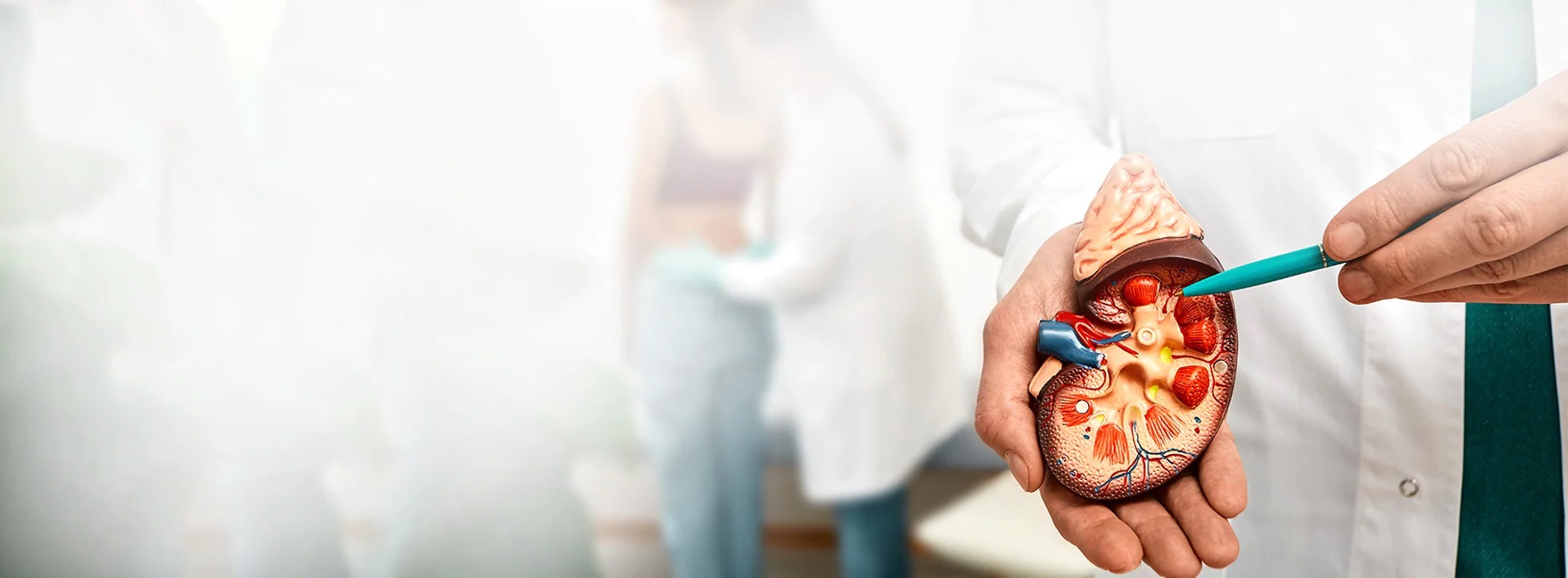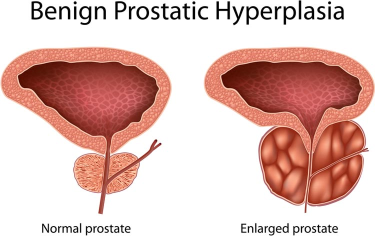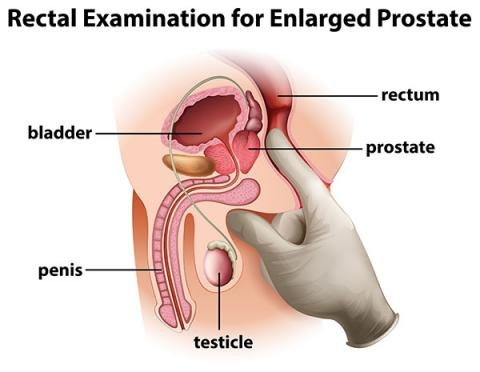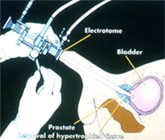NOW AVAILABLE AT BREACH CANDY HOSPITAL ON THURSDAYS 11:00 AM TILL 12:00 PM


Prostate Enlargement / BPH
Synonyms – (Benign Prostatic Enlargement, BPH, Enlargement of Prostate, Benign Hyperplasia, Prostatitis)
Get in touch with us today (022) 2645 2007
Prostate Enlargement / BPH
The prostate is a walnut-sized gland that forms part of the male reproductive system. The gland is made up of two lobes or regions enclosed by an outer layer of tissue. It is located in front of the rectum and just below the urinary bladder which is the storage organ for urine. The prostate gland surrounds the urethra, the canal through which urine passes out of the body.
Benign enlargement of the prostate or benign prostatic hyperplasia (BPH) is a non cancerous growth of the prostate gland. It is considered more as an aging disorder rather than a disease.

As the age advances and hair turns grey, the prostate gland enlarges around the same time. The prostate gland continues to grow during most of a man’s life. However, it does not cause symptoms before 40 years of age. After 50 years of age, a man begins to complain of symptoms due to Benign Prostatic Hyperplasia (BPH). As the prostate enlarges, the layer of tissue surrounding it stops it from expanding, causing the gland to press against the urethra like a clamp on a garden hose. The bladder wall becomes thicker and irritable. The bladder begins to contract even when it contains small amounts of urine, causing more frequent urination. Eventually, the bladder weakens and loses the ability to empty itself, so some of the urine remains in the bladder. The narrowing of the urethra and partial emptying of the bladder cause many of the problems associated with Benign Prostatic Hyperplasia (BPH).
Symptoms that may indicate Prostate problems are
Obstructive Symptoms are: –
- Weak stream
- Hesitancy
- Sensation of incomplete emptying
- Intermittent stream
- Prolonged urination
Irritative Symptoms are: –
- Frequency
- Nocturia
- Urgency
- Urge incontinence
Symptoms of BPH could be due to complications occurring secondary to neglecting the treatment of enlarged prostate.
These could be : –
- Recurrent Urinary Tract Infection (UTI)
- Bladder and / or Kidney damage
- Acute Retention of urine
- Chronic Retention of urine leading to kidney failure due to severe untreated back pressure changes
- Bladder Calculi secondary to obstruction by Benign Prostatic Hyperplasis (BPH).
Diagnosis of BPH / Prostate Disease
The patient may first notice the irritative or obstructive symptoms of out flow obstruction (LUTS) secondary to BPH or it could be detected during a routine health check-up. When BPH is suspected the patient should be examined by Urologist (a specialist who deals and treats in the problems of urinary tract and the male reproductive system). The urologist will evaluate the symptoms and advise:-
- Physical Examination -to palpate kidney and the bladder.
- Digital rectal examination of prostate –to look for size, consistency, and nodules in the prostate. This examination is done by the urologist in his clinic. He inserts a gloved finger into the rectum and feels part of the prostate next to the rectum. This examination helps him to evaluate the size, consistency and nodules in the prostate.
- Routine Urine Analysis to look for urinary infection.
- Serum Creatinine.
- Prostate specific antigen (PSA)– PSA is the protein produced by the prostate glands or prostate cells and found in the blood. These levels are generally elevated in the blood of men who have prostate cancer. However, PSA may also be elevated in severe urinary tract infection, prostate abscess, or large voluminous prostate gland. PSA levels can also be used for monitoring men with prostate cancer who have undergone treatment.

- Ultrasonography- – Ultrasonography of Abdomen and Pelvis with full Bladder and Post void residual urine.The ultrasonography of the abdomen and pelvis is done to assess the any secondary pathology in the kidney, ureter and the bladder and also to measure the post void residual urine.
- TRUS for Prostate and Seminal Vesicle –To directly evaluate any nodularity in irregularity of prostate.
- Uroflowmetry- One is asked to pass urine into a special commode which is connected to computerized device which measures the quantity and flow of urine. Reduced and obstructed flow will signify outflow obstruction secondary to BPH or stricture urethra.
- Cystoscopy- The urologist inserts a small tube through the opening of the urethra into the penis. This procedure is done under local or general anaesthesia. The cystoscope allows the urologists through its lens and light system to visualize the inside the urethra and the bladder. This also helps to assess the size of the prostate gland and rule out any other cause of obstruction.
Four Types Of Prostatitis
- Acute Bacterial Prostatitis: A severe and sudden bacterial infection that requires immediate medical attention .Symptoms:
- Pain around the base of the penisPainful urination and ejaculationWeak urine stream and difficulty urinatingFever, aches and chills
- Chronic Bacterial Prostatitis: 1. A milder bacterial infection that can linger for months2. Often happens to people who have had Acute Bacterial Prostatitis, or recurring UTIsSymptoms:
- Frequent and painful urination
- Lower back and rectal pain
- Blood in semen or urine
- Chronic Prostatitis / Chronic Pelvic Pain Syndrome : 1. It’s a most common type of prostatitis2. An inflammation where no bacteria are presentSymptoms:
- Persistent (>3 months) pain in the penis, scrotum, rectal area, lower back and/or lower abdomen
- Painful urination and ejaculation
- Frequent urination and weak urine stream
- Asymptomatic Prostatitis: 1. An inflamed Prostate without any symptoms2. No treatment needed
Treatment Of Benign Prostate Hyperplasia (BPH)
- The symptoms of outflow obstructions or LUTS secondary to Benign prostate hyperplasia (BPH) usually waxes and vanes with time. These symptoms can be described as mild, moderate or severe.
Conservative Or Medical Treatment For BPH
- There has been constant research to find a newer drug for the treatment of BPH. These drugs are either aimed at shrinking the prostate gland and/ or prevent the growth of the prostate or facilitate the passage of urine by relaxing the obstructed passage which is been caused by BPH.
Commonly used drugs are
- Alpha Blockers – Like Tamsulosin, Alfuzosin, Silodosin etc which act by relaxing the smooth muscles of the prostate and bladder neck to improve urine flow and to reduce bladder outlet obstruction.
- 5 Alpha Reductase inhibitors like – Dutasteride which can gradually shrink the enlarged prostate gland if taken for a long time period.
- Though the medical treatment may give relief in some selected cases it is important not to prolong the medication just to escape surgical treatment.
Surgical Treatment For Benign Prostate Hyperplasia (BPH)
- Most of the urologists will recommend removal of the enlarged part of the prostate which is symptomatic. The gold standard for the surgical treatment for Benign prostate hyperplasia (BPH) is Trans Urethral Resection of Prostate (TURP). This treatment is offered to the patients with signs and symptoms of outflow obstruction / LUTS secondary to Benign prostate hyperplasia (BPH).
- In this surgery, only the enlarged tissue that is causing obstruction to the urethra is removed. The rest of the peripheral tissue which is outside the capsule are left intact. This usually helps them in relieving the obstructions and other symptoms of Benign prostate hyperplasia (BPH).

Trans Urethral Resection Of Prostate ( TURP)
- Trans Urethral Resection of Prostate (TURP) is the procedure done for the Benign prostate hyperplasia (BPH). More than 90% of prostate surgery can be done through this trans urethral route. The technique of Trans Urethral Resection of Prostate (TURP) uses an instrument called Resectoscope which is passed through the urethra.This Resectoscope is attached with a light source and a lens which is connected with the camera. An electrical loupe that passes through the resectoscope and cuts the tissue (prostate) and controls the bleeding hence, creating a tunnel for easy passage of the urine.
- This transurethral resection of prostate TURP is considered to be the gold standard in the treatment of Benign Prostatic Hyperplasia ( BPH). In selected cases, Bipolar TURP could also be a good option.

Laser Surgery
- Holmium lasers are used to enucleate obstructing prostate lobe. The doctor passes the laser fibre through the urethra into the prostate using a cystoscope and then delivers holmium laser. The laser energy cuts and coagulates the prostate tissue.
- The laser technology is generally used for enucleation of the larger prostate of approximately more than 100 to 150 grams.
- Laser surgery requires anaesthesia and a hospital stay.
Open Surgery
- In the few cases when a transurethral procedure cannot be used, open surgery, which requires an external incision, may be used. Open surgery is often done when the gland is greatly enlarged, when there are complicating factors, or when the bladder has been damaged and needs to be repaired. The location of the enlargement within the gland and the patient’s general health helps the surgeon decide which of the three open procedures to use.
- With all the open procedures, anaesthesia is given and an incision is made. Once the surgeon reaches the prostate capsule, he or she scoops out the enlarged tissue from inside the gland.
